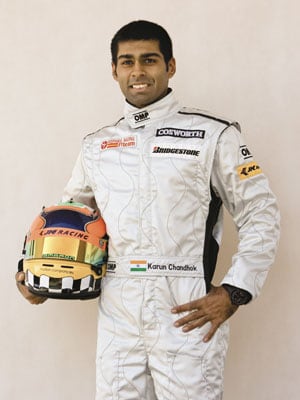
Racing for India
The Formula1 season kicks off, and there’s an Indian driver out there on the starting grid. A former race driver tells us what it took to get him there
In 2005, Narain Karthikeyan broke new ground when he drove in F1 with Jordan. After his exit, Vijay Mallya gave us reason to cheer, with his racing team, Force India. Earlier this year, Volkswagen announced their Polo Cup’s entry in India. In a first for Indian motorsport, the winner will be awarded direct exposure on the European circuits and will be backed by VW.
It gets better. A few days ago, Hispania Racing Team announced the signing of Karun Chandhok for the 2010 F1 season.
As a former racer and someone who has shared off-the-track experiences with Karun, I’m delighted; it’s a well-earned reward for him, and a great boost for Indian motorsport.
F1 has always been elitist. Aimed initially at European audiences, it took 50 years to come to Asia. But in the 2000s, it has successfully tapped Malaysia, Bahrain, Singapore, even China, in its quest to become more accessible to large emerging markets — and add to its TV viewership.
There has been talk of an Indian F1 GP since the late 90s. In the early 2000s, the Chennai-based motorsport community, film star Nagarjuna and the then AP government attempted to bring F1 to Hyderabad. Then Chandrababu Naidu lost power, and that was the end of that.
But India is too lucrative to abandon. It’s not surprising that Bernie Ecclestone, commercial rights owner of F1, has us firmly in his sights.






